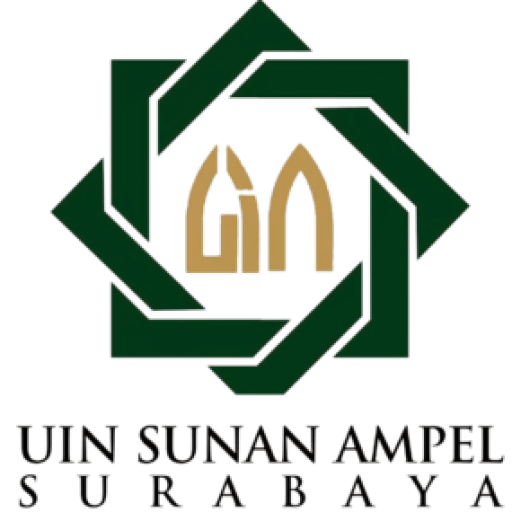Learning Methods
Learning Design and Process
Learning process standards are minimum criteria about the implementation of learning in study programs to obtain graduate learning outcomes. Learning process standards at UIN Sunan Ampel Surabaya includes: (a) characteristics of the learning process, (b) learning process planning, (c) implementation of the learning process and (d)
student learning load.
Learning Process Characteristics
The learning process at UIN Sunan Ampel Surabaya must fulfill the following characteristics: (a) interactive, (b) holistic, (c) integrative, (d) scientific, (e) contextual, (f) thematic, (g) effective, (h) collaborative, and (i) student-centered.
- Interactive
The learning process can be said to be Interactive if the learning outcomes of graduates are achieved by prioritizing the process of multi-directional interaction between students and lecturers, students with students and students with learning resources. - Holistic
The learning process has holistic characteristics if the learning process encourages the formation of a comprehensive and broad mindset by internalizing local and national excellence and wisdom. - Integrative
The learning process can be said to be integrative if the graduate learning outcomes are achieved through an integrated learning process and meet the overall graduate learning outcomes in a unified program through an interdisciplinary and multidisciplinary approach. - Scientific
The learning process can be said to be scientific if the graduate learning outcomes are achieved through a learning process that prioritizes a scientific approach so as to create an academic environment based on a system of values, norms, and rules of science and upholds religious and national values. - Contextual
The learning process can be said to be contextual if the learning outcomes of graduates are achieved through a learning process that is tailored to the demands of the ability to solve problems in their field of expertise.
- Thematic
Thematic means that graduate learning outcomes are achieved through a learning process that is tailored to the scientific characteristics of the study program and linked to real problems through a transdisciplinary approach. - Effective
The learning process can be said to be effective if the learning outcomes of graduates are achieved successfully by prioritizing the internalization of material properly and correctly within the optimum period of time. - Collaborative
The learning process can be said to be collaborative if the graduate learning outcomes are achieved through a joint learning process that involves interaction between individual learners to produce capitalization of attitudes, knowledge, and skills. - Student-centered
The learning process can be said to be student-centered if the graduate learning outcomes are achieved through a learning process that prioritizes the development of creativity, capacity, personality, and student needs, as well as developing independence in seeking and finding knowledge.
Learning Process Planning
Learning process planning is prepared for each course and presented in a semester learning plan (RPS) or course syllabus. The semester learning plan or course syllabus is prepared and developed by lecturers independently or together in an expertise group in a field of science and / or technology in the study program. The RPS or course syllabus contains at least: (a) the name of the study program, the name and code of the course, semester, credits, and the name of the lecturer, (b) the graduate learning outcomes imposed on the course, (c) the final abilities planned at each learning stage to fulfill the graduate learning outcomes, (d) study materials related to the abilities to be achieved, (e) learning methods, (f) time provided to achieve the ability at each learning stage, (g) student learning experience which is realized in the description of tasks that must be done by students during one semester, (h) criteria, indicators, and assessment weight, and (i) list of references used. RPS or syllabus must be reviewed and adjusted periodically with the development of science and technology.
Learning Process Implementation
The implementation of the learning process is carried out in the form of interaction between lecturers and students, students and students, and students with learning resources in a certain learning environment. The learning process in each course is carried out according to the RPS or course syllabus with the characteristics as described above. The learning process related to student research must refer to the National Research Standards. The learning process related to community service by students must refer to the National Standards for Community Service.
The learning process through curricular activities must be carried out systematically and structured through various subjects with a measurable learning load. The learning process through curricular activities must use effective learning methods in accordance with the characteristics of the subject to achieve certain abilities set out in the subject in a series of fulfillment of graduate learning outcomes.
LEARNING METHODS
- Group Discussion
Group discussion is an interactive learning process. This learning method requires each learner to collaborate with other learners in solving a problem. The advantages of this method can provide opportunities for learners who tend to be passive to be actively involved in a learning process. - Simulation
Simulation can be considered as a replication or visualization of a learning object. By applying this method, learners will have a specific experience related to the object of study as a real process. - Case Study
Case study as a method is a way designed by educators to provide context to the teaching materials to be transformed. - Collaborative Learning
As a new paradigm in learning, collaborative technique (collaboration learning) is a learning model that aims to foster cooperation between students. By placing them in small-scale groups, this method emphasizes cooperation between students based on consensus built by the group members themselves.
- Cooperative Learning
Cooperative learning method is a group learning model designed by educators to solve a problem/case or work on a specific task. It focuses on utilizing small groups with diverse academic backgrounds to work together to maximize the learning process. - Project-based Learning
Project-based learning is a systematic learning process by utilizing a project as a learning medium to achieve attitude, knowledge and skill competencies. In this learning method, learners’ involvement in the process of transforming knowledge and skills is achieved through a long, structured and rigid inquiry process on authentic and complex questions as well as systematically designed tasks and products/works in order to train the skills of researching, analyzing, producing and presenting the resulting product or work. - Problem-based Learning
Problem-based learning is a learning method that begins by presenting a problem designed in a context that is relevant to the material being studied. This learning method involves learners in investigations that allow them to understand, interpret, construct, and represent their understanding of teaching objects.
LEARNING FORM
a. Face-to-Face
The learning process emphasizes direct interaction between educators and students. In the face-to-face process there are several methods that can be applied, such as lectures, discussions, questions and answers, demonstrations and others. The role of educators is very significant and dominant so that the mastering of concepts and teaching materials is absolutely mastered by educators.
b. Response and Tutorial
Response or tutorial learning is academic tutoring where a tutor acts to help smooth the independent learning process of students, either individually or in groups. Tutorial work here is related to teaching material with steps to present the scope, objectives and relationship of tutorial topics followed by the delivery of tutorial material.
c. Seminar
Seminar is a form of learning conducted by a group of learners by discussing specific issues in order to obtain more focused conclusions. In the seminar model, the teaching object as the base of discussion is represented in the form of a paper or working paper that has been prepared previously. d. Practicum
Practicum is a learning process that takes place in a special and specific place. Learners play an active role in solving rubrics through the use of tools, materials and methods using laboratory facilities. By applying practice-based work, learners are enabled to gain empirical understanding as well as cognitive, affective, and psychomotor abilities. Learning practices emphasize the application of materials or knowledge that has been learned by learners.
d. Studio Practice/Field Practice/Internship
Practical learning is a learning model in which students carry out activities either exercises or applications so that they have skills that are more than just abstract theoretical mastery. Practical activities here are an effort so that students get a full and direct experience of the process. Practical learning can be carried out in a studio, institution, center, community, or in the field.
INDONESIAN LITERATURE STUDY PROGRAM
FACULTY OF ADAB AND HUMANITIES
Jl. Dr. Ir. Soekarno No. 682 Gunung Anyar, Surabaya 60294




